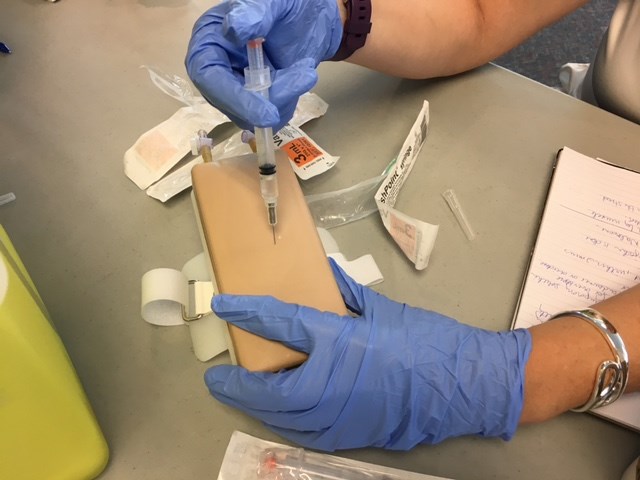Illicit drug overdose deaths keep occurring across British Columbia, not just in Vancouver’s notorious Downtown Eastside, and that’s why St. John Ambulance (SJA) is encouraging everyone to take its free opioid overdose response training.
A BC Coroners Service report released last week shows in the first eight months of 2018, 87% of illicit drug overdose deaths happened inside (50% in private residences and 30% other inside locations). Outside deaths made up less than 13% of the total.
The indoor deaths show “we really need to discuss it and not for it to be a taboo subject,” said Drew Binette, manager of government relations for SJA’s B.C./Yukon branch.
SJA has been contracted by the province to provide the free training to 5,000 by next March. So far, said Binette, it has given the 3.5-hour course to a thousand.
The training includes administering of artificial respiration, emergency scene management and the injection of Naloxone, a medication that can quickly reverse the effects of an overdose. The province has made Naloxone kits available without a prescription. It also shows how to recognize whether someone who is unconscious because of an overdose. Pinpoint eyes, drowsiness or having trouble being roused, slow breathing, blue lips or blue nails are some of the indications, said Binette, noting, “The majority of us have not seen an overdose.” And the class gives participants confidence to remain calm because they know how to deal with the situation.
Last year, in the Fraser North health region — which includes the Tri-Cities, Burnaby, New Westminster, Pitt Meadows and Maple Ridge — 142 people died of overdoses of illicit drugs. That’s up from 104 in 2016 and 74 in 2015. There has been a downward trend, however, so far in 2018, with 85 overdose deaths in the region as of Aug. 31.
Coquitlam was the only one of the Tri-Cities listed in a table of 15 B.C. cities in the Coroners Service’s report. Of the 15, Coquitlam had the lowest total of reported deaths for the first eight months of 2018: 15 compared to 28 in all of 2017 and 14 in 2016. Last year’s total was the 11th highest.
Provincially, there were 98 suspected OD deaths in August, a 20% decrease from the 122 in August 2017, and 27% less than the 134 in July of this year.
Binette said one of the main reasons the opioid overdose training was created was to reduce stigma and discrimination. “Really, the training is open to everybody [over the age of 16]. There are no barriers,” said Binette.
“One more person trained is one more person saved, and that’s why we do this,” he said.
SJA offers the course in 10 locations, the nearest being in Burnaby and Surrey. Binette said there hasn’t been a large expression of interest in the Tri-Cities but he’s hopeful there will be by the end of the year.
• Registration for the free courses can be done online at startsavinglives.ca, or by phone at 604-321-2651 or in person at any St. John Ambulance branch including Port Moody (2338 Clarke St.).



